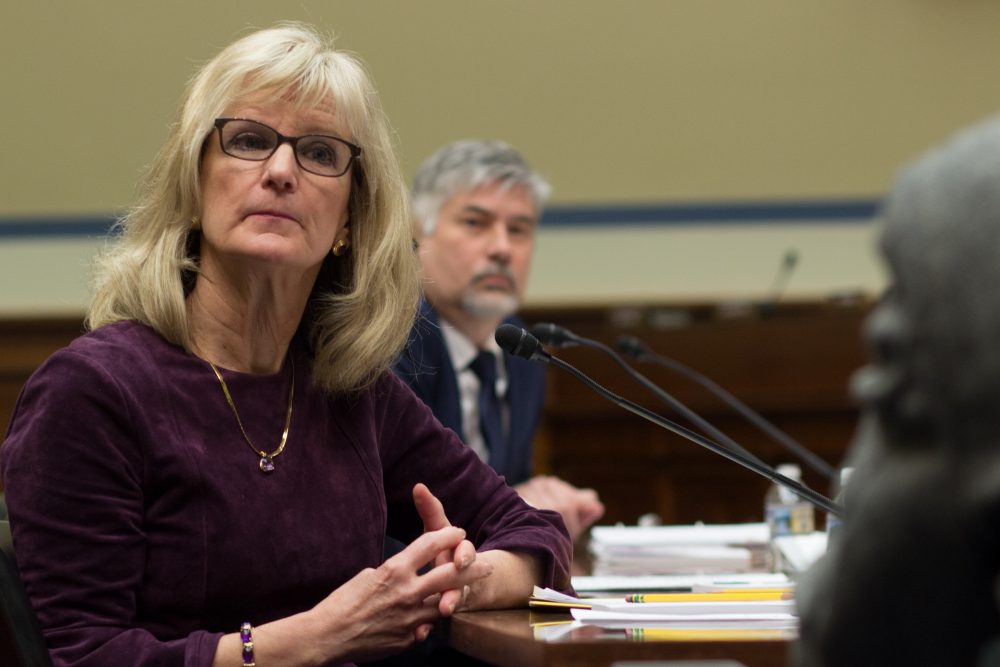WASHINGTON – The Trump administration came under fire Wednesday from congressional critics who said agencies were unnecessarily delaying or blocking release of public information about the government.
“The Trump administration should be operating with a presumption of openness — as the law now requires — rather than maligning FOIA requesters who are seeking the truth.” said Rep. Elijah Cummings, D-Baltimore, the chairman of the House Oversight and Reform Committee.
Administration officials said they have seen an unprecedented number of Freedom of Information act requests, and government agencies are struggling to keep up.
The Environmental Protection Agency and Department of the Interior have implemented plans to deal with the influx that congressional critics found problematic.
In the middle of Sunshine Week, the House Oversight and Reform Committee interrogated Freedom of Information Act officers on transparency issues in the Trump administration.
The Freedom of Information Act is a law that requires federal agencies to disclose records to any citizen or journalist who requests it.
Any record not covered by seven exemptions is available to any person on request.
The Freedom of Information Act has helped thousands of journalists gain access to public records like the calendar for former EPA director Scott Pruitt.
But in recent years, more federal agencies have failed to respond to requests in the required 20-day timeline, creating up to a decade-long backlog, according to. The backlog is getting worse.
In 2016, President Barack Obama signed into law the Freedom of Information Improvement Act that set out to further encourage agencies to release information as requested. Under that law, records are presumed public access until proven to be subject to the exemptions.
“The Trump Administration is failing to fully comply with the requirements of this new law,” Cummings said in his opening statements.
Cummings said that multiple agencies have not yet turned in data on their FOIA compliance that was due in February. He added that the EPA has not updated its regulations to reflect the changes in 2016, and the Department of the Interior has “proactively disclosed 58 percent less data than the last full year of the Obama administration.”
In President Donald Trump’s first year in office, the federal government received an “unprecedented number” of more than 800,000 FOIA requests, according to Melanie Ann Pustay, director of the Office of Information Policy for the Justice Department.

In 2018, that number is expected to have grown; the number of requests on backlog is also projected to have grown. Figures for 2018 were not yet available.
Pustay said she believes the increase in requests is a result of an “increased interest in using FOIA” from the general public.
Committee members pressed throughout the hearing for an explanation for what would be needed to speed up processing FOIA requests and to eliminate the backlog. But the witnesses did not provide direct answers.
Rep. Mark Meadows, R-North Carolina, said that because of the slow speed, “overall, we are not complying with the law or at least the spirit of the law.”
Timothy Epp, the EPA’s acting director of its FOIA office, would not answer whether manpower alone was a problem, but he did say that the agency has hired more FOIA officers in recent months.
Last year, 60 percent of requests sent to the EPA were completed in the 20-day, federally mandated timeline, Epp said. Other requests were backlogged for months or years for being too “complex,” asking for a broad reach consisting of hundreds of pages of documents, he said.
Rachel Spector, the Interior Department’s acting deputy chief FOIA officer said that her office would need better FOIA technologies and more resources.
Spector, who took her position two months ago, later took fire from Rep. John Sarbanes, D-Baltimore, for an ambiguous monthly limit currently imposed by her agency on documents processed for complex records requests.
“I’m concerned that these monthly limits may be instituted potentially as a way of limiting the inquiries of interest groups based on their politics,” Sarbanes said.
She said the limit changes case by case, but was placed to allow for FOIA officers to spend equal time on current incoming documents as those backlogged.
Rep. Jackie Speier, R-California, called the limit “a really bad idea,” and recommended that Interior Department officials remove it.
The process for dealing with backlog for requests sent to the Environmental Protection Agency also drew criticism.
Committee members also criticized the EPA for following a tiered FOIA system based on the complexity of a request instead a first come, first serve basis, as other agencies do.


You must be logged in to post a comment.